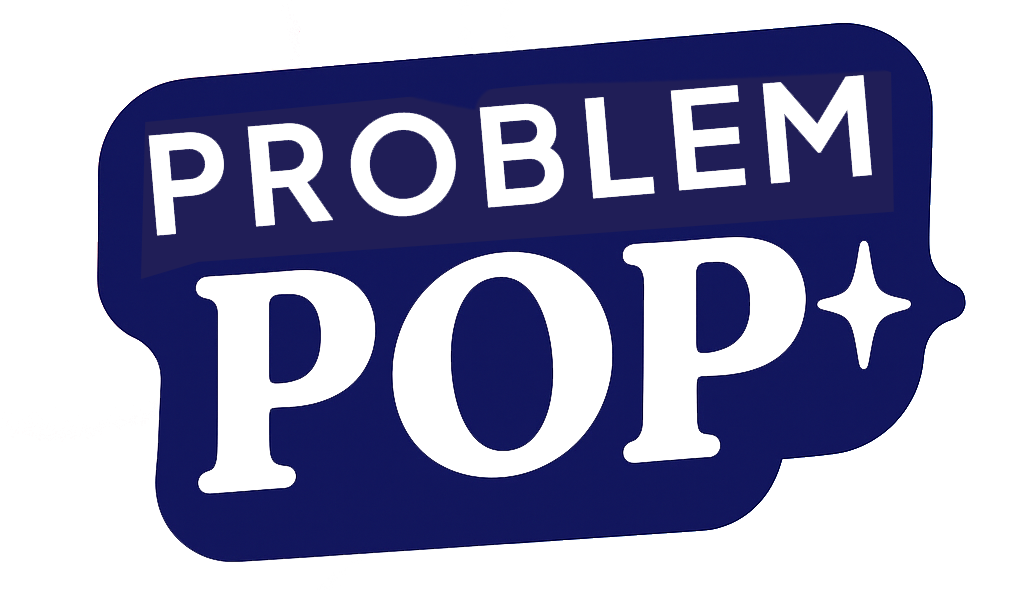How to Find and Rank for Long-Tail Keywords (The Secret to Early SEO Wins)
Right, let's talk about the SEO equivalent of finding a tenner in your old coat pocket. While everyone's scrapping over "best pizza," you could be quietly dominating "gluten-free sourdough pizza delivery Manchester Tuesday evenings." Long-tail keywords are where small sites actually win.
The Long-Tail Keyword Strategy: How the Underdog Can Win the SEO Game
Let me share a dirty little secret about SEO: the "experts" telling you to compete for high-volume keywords from day one are either lying to you or haven't actually built a successful website themselves. It's like watching someone recommend you challenge Usain Bolt to a sprint on your first day at the gym. (And we've all been subjected to that kind of useless advice, haven't we?)
The truth is, when I launched my first e-commerce site, I spent months chasing competitive keywords like "luxury candles" only to find myself buried on page 37 of Google. All that effort for approximately zero visitors. Spectacular. But then I stumbled upon long-tail keywords – those longer, more specific phrases that might not bring thousands of visitors, but actually bring the right visitors. And more importantly, keywords I could actually rank for without a marketing budget the size of a small nation's GDP.
Why Long-Tail Keywords Are Your Secret Weapon
Long-tail keywords are the SEO equivalent of finding a secret entrance to the party while everyone else queues at the main door. They're specific, often conversational phrases that potential customers use when they're closer to making a decision – or at least know precisely what they're looking for.
The beauty of these unassuming phrases is threefold: they're less competitive, they convert better, and they're how real humans actually search. No one types "shoes" into Google unless they enjoy scrolling through 847 million results. They type "women's waterproof walking boots for narrow feet" because they know exactly what they want.
Having learned from my own business mistakes, I can tell you that fighting for broad keywords when you're new is like trying to be heard at a rock concert by whispering. Long-tail keywords, meanwhile, are like having a quiet, profitable conversation in a side room with exactly the right people.
Finding Your Golden Long-Tail Opportunities
After experiencing burnout from trying to do everything alone in my previous business, I've become rather obsessive about efficiency. Finding long-tail keywords shouldn't require sacrificing your firstborn to the SEO gods or spending weeks in spreadsheet hell. Here's how to identify them without losing your mind:
- Use the "People Also Ask" and "Related Searches" sections in Google. These are literal goldmines of long-tail phrases that real humans are searching for.
- Explore forums like Reddit, Quora, or industry-specific communities where people ask questions in natural language.
- Try tools like AnswerThePublic or Ubersuggest to generate question-based keywords.
- Check Amazon reviews in your niche – customers often describe problems in ways that differ from industry jargon.
- Look at your own customer service emails – the questions people ask are often perfect long-tail keywords.
The mistake most make is thinking like a marketer rather than a confused human with a problem to solve. Your potential customers aren't searching for "optimal solutions for hydration maintenance" – they're typing "why is my water bottle leaking in my bag." Understanding genuine customer pain points is crucial for this process, and there are strategic places to uncover these pain points that go beyond the obvious sources.
I learned the hard way that cash flow matters more than vanity metrics, and the same applies to keywords. A hundred visitors with purchase intent are infinitely more valuable than ten thousand who bounce after three seconds.
Assessing Competition (Or: Is This Keyword Actually Winnable?)
There's nothing quite like the special pain of spending weeks creating "perfect" content only to discover you're competing against Wikipedia, The New York Times, and every established brand in your industry. Let's avoid that particular circle of hell, shall we?
Before committing to a keyword, perform this quick competition check:
- Google the exact phrase and scrutinise the first page. If it's dominated by major brands and sites with domain authorities that make yours look like a toddler's first steps, perhaps reconsider.
- Look for forums, Reddit threads, or YouTube videos ranking on page one – these are signs that Google hasn't found definitive content yet.
- Check if the top results actually answer the question well. Surprising how often they don't.
- See if the top-ranking pages were published relatively recently. If they're all ancient (in internet years), there might be room for fresh content.
- Use tools like Ahrefs or SEMrush to check keyword difficulty, but take their scores with a hefty pinch of salt.
The sweet spot? A keyword where the search intent is clear, but the current content doesn't quite scratch the itch. That's your opportunity to swoop in like a caffeinated superhero with exactly what people are looking for. This is where evaluating whether a problem is worth solving becomes essential to your content strategy.
Creating Content That Actually Deserves to Rank
Here comes the part where I shatter another illusion: finding low-competition keywords isn't a licence to produce rubbish content. Google isn't that stupid (anymore), and neither are your potential customers.
Having been through business failure myself, I know how tempting it is to take shortcuts. But creating thin content optimised for long-tail keywords is just building a house of cards – one algorithm update away from collapse.
Instead, approach each long-tail keyword as a genuine problem someone needs solved:
- Answer the specific question thoroughly before branching out to related topics.
- Include practical, actionable advice that someone could implement immediately.
- Add value beyond what's already ranking – more depth, better organisation, fresher information, or unique insights.
- Write like a helpful human, not an SEO robot trying to hit keyword density targets.
- Address the questions behind the question – what might someone ask next after getting their initial answer?
The content that wins isn't just technically optimised – it's genuinely useful. It makes someone's life better in some small way. It answers their question so well they might actually mutter "perfect" before clicking away (the highest compliment on the internet).
Turning Long-Tail Success Into Broader Authority
The clever strategy isn't just to collect random long-tail keywords like dusty trinkets. It's to build clusters of related long-tail content that gradually establish your authority on broader topics.
Think of it as building a spider web. Each long-tail article is a strand, but together they create a structure that can catch much bigger opportunities. As you rank for multiple related long-tail keywords, Google starts to recognise you as an authority on the broader topic. This approach works exceptionally well when you structure your content into comprehensive pillar pages that connect all your long-tail pieces together.
For instance, ranking for "how to remove coffee stains from silk blouses," "best way to get red wine out of linen napkins," and "can you machine wash cashmere" gradually positions you as an authority on fabric care – allowing you to eventually compete for more competitive terms.
After a while, you'll notice something magical: you'll start ranking for keywords you never specifically targeted. That's Google recognising your site's topical authority – the SEO equivalent of being invited to the cool kids' table.
The Patience Game (Or Why Most People Fail at This Strategy)
Let's acknowledge the elephant in the room: this approach requires patience. It's not the "hack your way to 100,000 visitors by next Tuesday" garbage that pollutes most marketing advice.
The long-tail strategy is for those who understand that sustainable success rarely comes overnight. It's methodical, compounding work. You might not see dramatic results for 3-6 months. But when it works, it really works.
Most people abandon ship too early, lured away by the next shiny tactic. They plant seeds on Monday and dig them up on Friday to check if they're growing. Don't be that person.
The websites that dominate today weren't built with impatience. They were built with consistent effort applied in the right direction over time. Building authority through long-tail keywords is playing the long game – but it's a game you can actually win, unlike trying to outrank Amazon for "best products" from day one.
Practical Next Steps: Your Long-Tail Action Plan
So you're sold on the concept, but where exactly do you start? Here's your practical roadmap:
- Identify 5-10 core topics that matter to your business and audience.
- For each core topic, generate 15-20 specific long-tail keywords using the methods discussed earlier.
- Assess the competition for each and prioritise the most winnable opportunities.
- Create a content calendar focusing on publishing 2-4 high-quality long-tail pieces per month.
- Monitor rankings and traffic, but don't obsess – give it at least 8-12 weeks before drawing conclusions.
Remember that consistency trumps perfection. A regular publishing schedule of good content will outperform sporadic bursts of "perfect" content every time. The algorithm rewards consistent publishers, as I discovered after my own feast-or-famine approach yielded predictably feast-or-famine results.
And please, for the love of whatever you hold sacred, don't just blindly copy what your competitors are doing. If they're established players, their keyword strategy won't work for you. And if they're not ranking well, why would you follow their approach anyway?
The path to SEO success is paved with keywords that others have overlooked – the specific questions your potential customers are asking when they're ready to engage or purchase. While everyone else is fighting over scraps from the competitive keyword table, you'll be having a feast in a room they haven't even discovered.
The long-tail keyword strategy isn't glamorous. It won't make for impressive conference presentations or viral LinkedIn posts. But it works. And in business, that's the only metric that actually matters.






